Politics
Taliban release detained elderly British couple
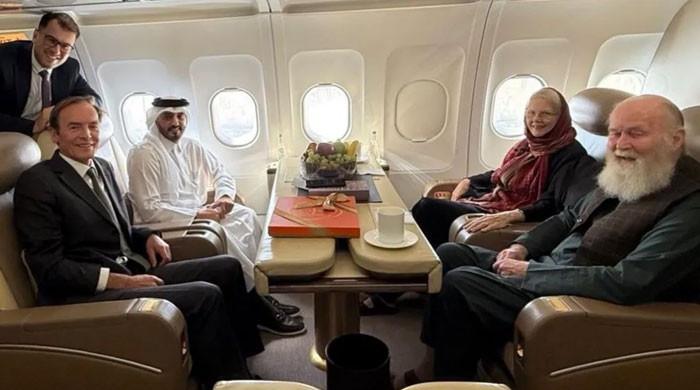

An elderly British couple detained in Afghanistan for almost eight months were released on Friday, the Taliban authorities said, after pressure built to free the pair due to fears over their health.
Taliban officials have refused to detail why Peter Reynolds, 80, and his wife Barbara, 76, were arrested in February as they were returning to their home.
“We’ve been treated very well. We’re looking forward to seeing our children,” said Barbara, standing next to her husband on the tarmac of Kabul airport.
“We are looking forward to returning to Afghanistan if we can. We are Afghan citizens,” she added.
The couple were married in Kabul in 1970, and have spent almost two decades living in Afghanistan, running educational programmes after moving there. They also became official Afghan citizens.
Their family had made repeated pleas about their ailing health after their arrest.
Foreign Ministry spokesman Abdul Qahar Balkhi, in a statement posted on social media, said the couple were handed over to the UK’s special representative to the country, Richard Lindsay.
“Two British nationals named Peter and Barbara Reynolds, who had violated the laws of Afghanistan, were released from custody today following the judicial process,” Balkhi added.
Images of the couple standing together with Lindsay at Kabul airport before their departure to the Qatari capital Doha were broadcast on Sky News.
“They are very relieved to be going home,” Lindsay told the broadcaster.
In late July, the independent UN human rights experts called for the Taliban government to free the pair, warning of the “rapid deterioration” of their physical and mental health, stating that they “risk irreparable harm or even death”.
Foreign ministry spokesman Balhk, in his statement, said that the government “does not view the matters of citizens from a political or transactional angle”.
A Qatari official, on condition of anonymity due to the sensitivity of the matter, told AFP that the couple were “safely released from detention in Afghanistan following mediation led by Qatar”.
“The Qataris had been engaged with the Afghan authorities for many months, working in close coordination with the British government,” he added.
Politics
Trump ‘guilty for casualties’ in Iran protests: Khamenei
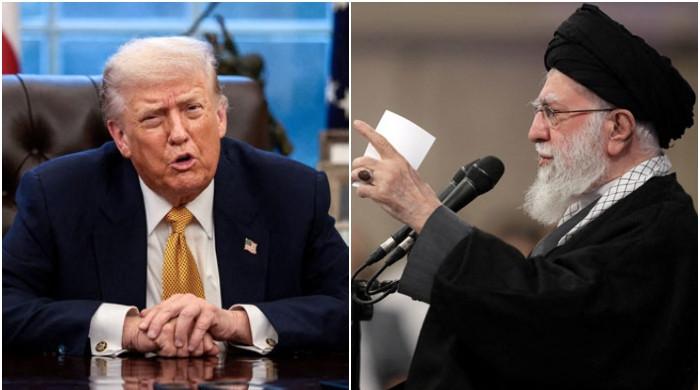
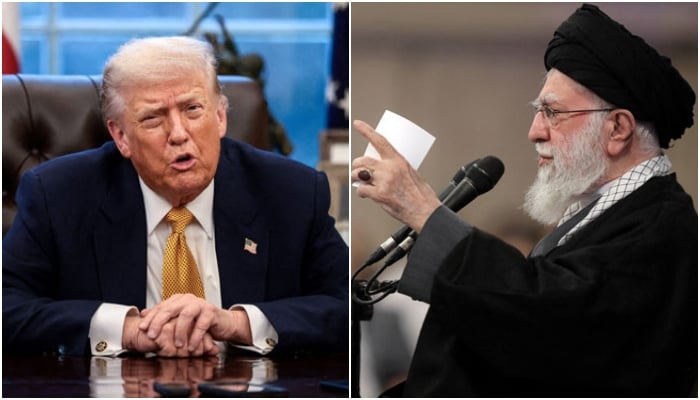
- Khamenei terms wave of protests “American conspiracy”.
- Iran’s supreme leader says will not spare domestic criminals.
- DPM Dar expresses hope for peace and stability in region.
Iran’s supreme leader Ayatollah Ali Khamenei on Saturday accused US President Donald Trump of being responsible for “casualties” during a protest wave in the country.
“We hold the American president guilty for the casualties, damages and accusations he has levelled against the Iranian nation,” he told a crowd of supporters during an address marking a religious holiday.
“This was an American conspiracy,” he said, adding that “America’s goal is to swallow Iran… the goal is to put Iran back under military, political and economic domination”.
He further said authorities “must break the back of the seditionists” after a crackdown on the protest wave.
“We do not intend to lead the country to war, but we will not spare domestic criminals… worse than domestic criminals, international criminals, we will not spare them either,” he added.
“By God’s grace, the Iranian nation must break the back of the seditionists just as it broke the back of the sedition.”
It is pertinent to mention here that more than 3,000 people have died in Iran’s nationwide protests, rights activists said on Saturday, while a “very slight rise” in internet activity was reported in the country after an eight-day blackout.
The protests erupted on December 28 over economic hardship and swelled into widespread demonstrations calling for the end of clerical rule in the country, culminating in mass violence late last week.
Tensions in Iran, however, subsided after three weeks of protests under an internet blackout. The capital Tehran, however, has been comparatively quiet for four days, said several residents reached by Reuters.
Drones were flying over the city, but there were no signs of major protests on Thursday or Friday, said the residents, who asked not to be identified for their safety.
Separately, Deputy Prime Minister Ishaq Dar held telephonic conversation with Iran’s Foreign Minister Abbas Araghchi today.
They discussed the current situation in Iran and the wider region.
DPM Dar expressed hope for peace and stability, and both sides agreed to continue bilateral consultations on matters of mutual interest.
Earlier, US President Donald Trump thanked Iran’s leaders for cancelling what he said were hundreds of planned executions of protesters after a crackdown.
Taking to his social media platform, he said the mass hangings had been called off and praised Tehran for the move.
US President Donald Trump, whose repeated threats to act had included a vow to “take very strong action” if Iran executed protesters, said Tehran’s leaders had called off mass hangings.
“I greatly respect the fact that all scheduled hangings, which were to take place yesterday (Over 800 of them), have been cancelled by the leadership of Iran. Thank you!” he posted on social media.
Politics
Nobel Prize inseparable from winner but medal can be given away, says award body
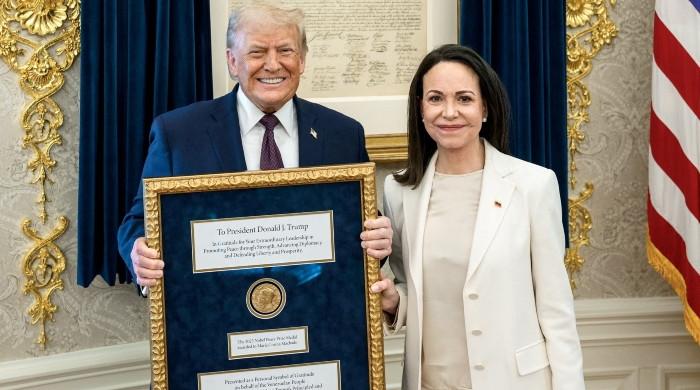
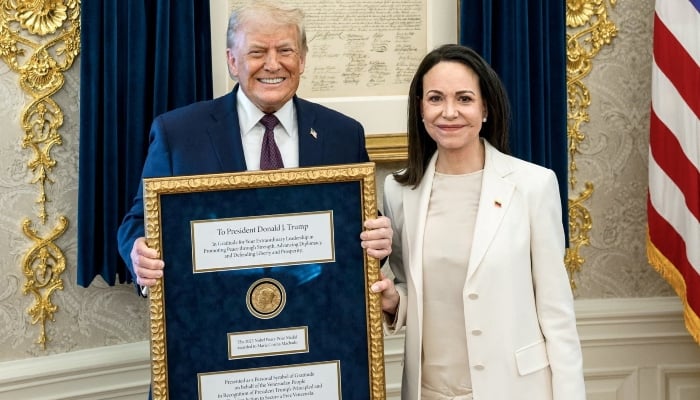
- Venezuela’s Machado gave her Nobel medal to Trump.
- Donald Trump says he intends to keep the medal.
- Original laureate recorded in history as prize recipient.
OSLO: The Nobel Peace Prize remains inseparably linked to the person or organisation that won it, though the medal can be given away, the Norwegian Nobel Committee said on Friday, a day after last year’s winner gave her medalto US President Donald Trump.
Venezuelan opposition leader Maria Corina Machado gave her medalon on Thursday to Trump, who thanked her for it. The White House released a photo of Trump and Machado, with Trump holding up a gold-coloured frame displaying it, and a White House official said Trump intends to keep it.
Machado’s award also consists of a diploma and 11 million Swedish crowns ($1.19 million).
“Regardless of what may happen to the medal, the diploma, or the prize money, it is and remains the original laureate who is recorded in history as the recipient of the prize,” the award body said in a statement.
“There are no restrictions in the statutes of the Nobel Foundation on what a laureate may do with the medal, the diploma, or the prize money. This means that a laureate is free to keep, give away, sell, or donate these items,” it added.
‘Inseparably linked’
The medal and the diploma are physical symbols confirming that an individual or organisation has been awarded the prize, said the five-strong award committee.
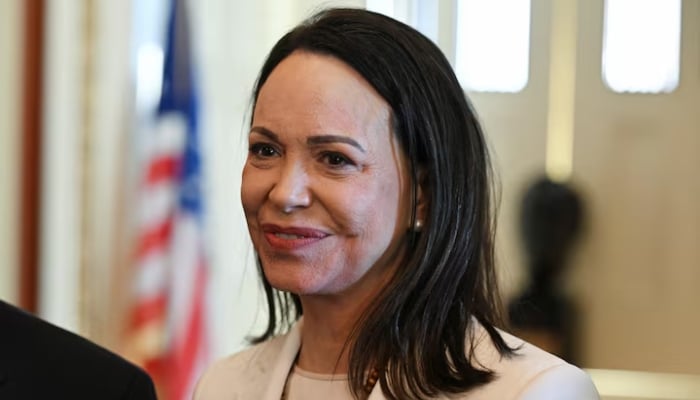
“The prize itself – the honour and recognition – remains inseparably linked to the person or organisation designated as the laureate by the Norwegian Nobel Committee,” it said.
The committee, which did not refer to Trump and Machado by name in its statement, said it does not comment on a laureate’s statements, decisions or actions after the prize is announced.
It was not the first time a Nobel laureate has given away the medal. In 1943, Nobel literature laureate Knut Hamsun gave his to Nazi propaganda minister Joseph Goebbels.
In 2022, Nobel Peace laureate Dmitry Muratov sold his medal for $100 million to raise money for the UN children’s fund Unicef to help Ukrainian refugee children.
In 2024, the widow of former UN Secretary-General Kofi Annan donated his 2001 Nobel Peace Prize medal and diploma to the UN office in Geneva.
Politics
Trump purchases $100 million worth of Netflix, Warner Bros bonds


US President Donald Trump purchased about $100 million in municipal and corporate bonds from mid-November to late December, his latest disclosures showed, including up to $2 million in Netflix and Warner Bros Discovery bonds just weeks after the companies announced their merger.
Financial disclosures posted on Thursday and Friday showed the majority of Trump’s purchases were municipal bonds from cities, local school districts, utilities and hospitals.
But he also bought bonds from companies including Boeing, Occidental Petroleum and General Motors.
The investments were the latest reported assets added to Trump’s expanding portfolio while he is in office.
It includes holdings in sectors that benefit from his policies, raising questions about conflicts of interest.
For example, Trump said in December that he would have a say in whether Netflix can proceed with its proposed $83 billion acquisition of Warner Bros Discovery, which faces a rival bid from Paramount Skydance.
Any deal to acquire Warner Bros will need regulatory approval.
A White House official, who spoke on the condition of anonymity, said on Friday that Trump’s stock and bond portfolio is independently managed by third-party financial institutions and neither Trump nor any member of his family has any ability to direct, influence or provide input regarding how the portfolio is invested.
Like many wealthy individuals, Trump regularly buys bonds as part of his investment portfolio.
He previously disclosed at least $82 million in bond purchases from late August to early October.
-

 Tech5 days ago
Tech5 days agoNew Proposed Legislation Would Let Self-Driving Cars Operate in New York State
-

 Sports7 days ago
Sports7 days agoClock is ticking for Frank at Spurs, with dwindling evidence he deserves extra time
-
Sports1 week ago
Commanders go young, promote David Blough to be offensive coordinator
-

 Entertainment4 days ago
Entertainment4 days agoX (formerly Twitter) recovers after brief global outage affects thousands
-

 Fashion6 days ago
Fashion6 days agoSouth India cotton yarn gains but market unease over US tariff fears
-

 Fashion7 days ago
Fashion7 days agoChina’s central bank conducts $157-bn outright reverse repo operation
-

 Business1 week ago
Business1 week agoSoftBank reduces Ola Electric stake to 13.5% from 15.6% – The Times of India
-

 Sports6 days ago
Sports6 days agoUS figure skating power couple makes history with record breaking seventh national championship






